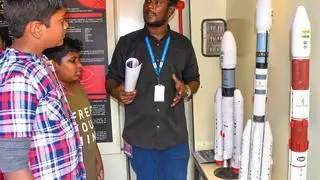“The pandemic has exacerbated inequalities and has proved to be a learning opportunity for us to improve resilience and strengthen public health systems,” said Soumya Swaminathan, Chief Scientist, World Health Organization.
“The focus needs to be on global collaboration when dealing with the virus regarding diagnostics, therapeutics, behavioural and mental health concerns, transmission, vaccine development, and how the disease impacts children (learning, cognitive development) with schools being shut,” she said, while addressing the valedictory of the XV International Conference on Public Policy & Management hosted by the Centre for Public Policy at IIM Bangalore.
Demographic factor in mortality rate
Observing that the WHO has been working in all these areas, she said: “The mortality rate is not going up in the second wave of the pandemic. This is probably related to demographics and other factors. We do not yet know why South Asia and Africa have lower mortality rates than Europe and the Americas.”
Talking on the pandemic and its impact on public health systems, she said diseases like TB, cancer, malaria would see a definite impact. “There have been many warnings for pandemics and health emergencies – some localised like the Nipah virus, encephalitis, diarrhoea etc. Unless we have a system of strong surveillance, it can quickly go out of hand. The Integrated Disease Service Programme (ISDP), in India, helps to have surveillance at the district level and below. What we do not have is public health cadre that is devoted to not just detection and response but also prevention, management, training and capacity building.”
Swaminathan called for rights-based public health laws that have clear communication and command structures, empower states to create rules and set aside budgets for public health preparedness.
Missing links
She said the pandemic has shown up missing links in primary health care in India. “Health is not only about treating diseases; it covers food, sanitation, water, housing, risk factors like alcohol and tobacco. Where there is devolution of power, there is community participation and sustainable response,” she explained.
Responding to a question on how long the Covid-19 pandemic will last, she said that while WHO has no crystal ball, it would be safe to say that eradication is not possible so the development of a vaccine can protect vulnerable populations.
“By early 2021, we should have some good news. Then, there is the big challenge of being able to scale and distribute and allocate fairly around the world without letting the rich countries corner the limited doses. But India is a good position because many companies are working on vaccine development, either on their own or in collaboration, and India is a manufacturing hub for vaccines,” she said, adding that planning is required for adult immunisation programmes.
When asked what the top three priorities should be for the government, Swaminathan said that timely and accurate data on mortality and disease prevalence is important. “Investments in the health system should increase at the primary healthcare centres so that healthy life expectancy can be addressed, universal health coverage should be provided and cadres of health workers should be trained and incentivised,” she responded, adding that investment in research and development of health systems should increase.








Comments
Comments have to be in English, and in full sentences. They cannot be abusive or personal. Please abide by our community guidelines for posting your comments.
We have migrated to a new commenting platform. If you are already a registered user of TheHindu Businessline and logged in, you may continue to engage with our articles. If you do not have an account please register and login to post comments. Users can access their older comments by logging into their accounts on Vuukle.